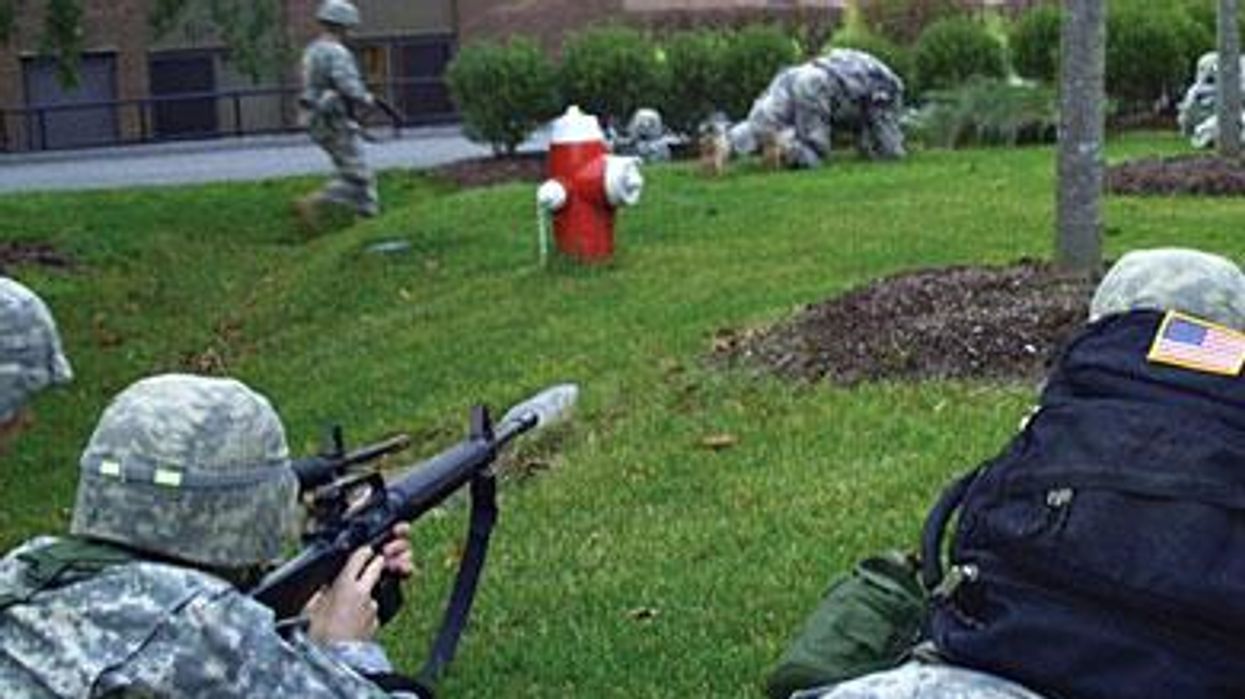World
Brown University to Military: Accept Trans Recruits Or Else
Brown University to Military: Accept Trans Recruits Or Else

By continuing to use our site, you agree to our Privacy Policy and Terms of Use.
Brown University to Military: Accept Trans Recruits Or Else
Brown University to Military: Accept Trans Recruits Or Else

At least one Ivy League University doesn't look like it will allow ROTC to return to campus after the repeal of "don't ask, don't tell." Brown University's president says that because the military still discriminates against transgender recruits, it shouldn't be welcomed back.
"We must do all in our power as an institution to carry the message to Congress, the executive branch, and the military establishment that the policy barring transgender individuals from military service must be changed," wrote Ruth J. Simmons in a letter responding to a faculty committee that had investigated the issue.
Like a lot of colleges and universities, Brown had ended its ROTC program and was considering reinstating it after "don't ask, don't tell" was repealed. But under Simmons' proposal, students at Brown will continue to be able to join ROTC programs only via a partnership with neighboring Rhode Island universities. Brown's own campus would remain void of ROTC and a military recruiting presence.
Conservative news blogs have already suggested that this policy could put the university at risk of losing millions in federal funding. The Solomon Amendment (a federal law upheld by the Supreme Court after schools challenged it) allows the Defense Department to withhold funding to any school it decides interferes with military recruiting.
The Bush administration famously invoked the amendment in a face-off with Harvard and other schools, and won. Supreme Court Justice Elena Kagan was dean of the Harvard law school at the time, and Republicans made her opposition to military recruiting an issue during confirmation hearings. Like a lot of school leaders, Kagan had opposed recruiting on the grounds that the military was violating the law school's anti-discrimination policy. Law firms, for example, aren't allowed to recruit unless they agree to the anti-discrimination policy.
Some universities cut off ROTC ties for other reasons. Brown's split with ROTC began in 1969 during the height of the Vietnam War. So the faculty committee that made recommendations in June was also torn on whether to keep out ROTC as a statement against ongoing wars. Simmons seemed to dismiss that concern and instead focused on transgender rights.
Simmons called on the university to "commit to helping to arouse greater national attention to the discrimination of the military and others against transgender individuals." And her proposal must now be considered by the university's Corporation, which has final say.
"Many speak about the importance of service to the nation through the military and they are correct," Simmons wrote. "However, to root out the manifestation and vestiges of discrimination from our national life is an equally important dimension of serving the nation."
Charlie Kirk DID say stoning gay people was the 'perfect law' — and these other heinous quotes